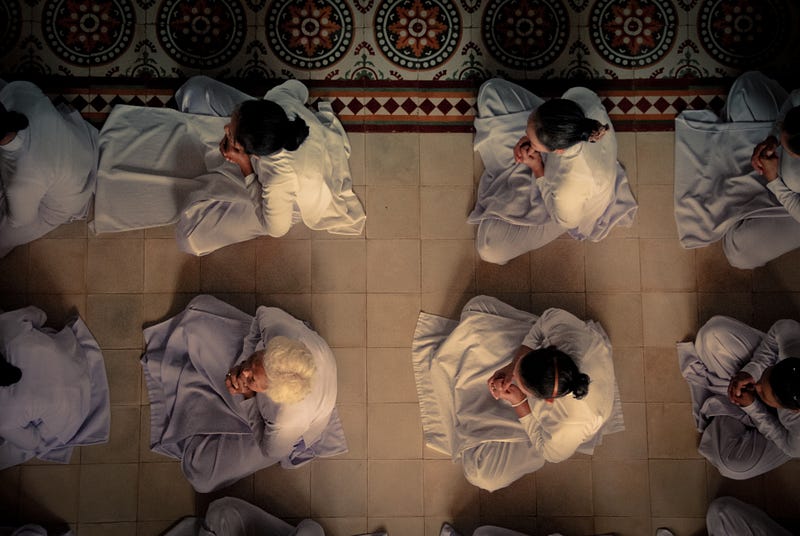Exploring Religion Through Science and Philosophy: Insights from Daniel Goldman
Written on
Chapter 1: Introduction to Religion and Science
In the realm of spirituality, I often refer to myself as “The Spiritual Anthropologist.” This title reflects not only my fascination with the cultural aspects of alcohol but also my commitment to examining religion through a scientific lens. Throughout my career, I've penned numerous articles that delve into this subject, blending philosophical discussions with rigorous scientific inquiry.
With a collection of both informal and scholarly writings, my research primarily investigates religion from a cohesive psychological and anthropological perspective. One of my most significant contributions is the paper titled “A Unified Psychological and Anthropological Model of Religion.” This work seeks to merge psychological theories with the anthropological framework established by Ninian Smart, creating a comprehensive understanding of religious constructs.
At the core of religious belief lies what I term a "religioid" belief system. These beliefs can be scrutinized using psychological methods, such as fMRI technology. This foundational aspect of belief enables me to transform Smart’s “seven dimensions of religion”—essentially a tool for analysis—into a full-fledged definition of religion itself.
The first video, "Daniel Goleman: Science vs. Religion," explores the intricate relationship between these two fields, offering perspectives that challenge traditional views on faith and reason.
Section 1.1: Understanding Religious Rejectionism
The exploration of religious beliefs leads to the concept I refer to as “Religious Rejectionism.” While the term may seem paradoxical, it encapsulates a belief system centered on the rejection of all that is perceived as “religious” within a community. Unlike mere disbelief, this position actively affirms that concepts such as afterlives and deities do not exist, which constitutes its own form of religioid belief.
Subsection 1.1.1: Common Misconceptions About Religion
Many individuals misinterpret the essence of religion. They often assume that a religion must involve a deity or be organized in a structured way. Some perceive religion as inherently detrimental or liken it to a cult with a larger following. Such notions lack both scientific and philosophical support.

An excellent starting point for those hesitant to engage with more academic texts is my article “A Screwed-Up View of Religion.” This piece provides a clear overview of what religion is and isn’t. In contrast, “The Pervasive Nature of Religiophobia” addresses the negative perceptions of religion prevalent in many societies. While it is true that individuals have committed harmful acts in the name of religion, similar acts have occurred independently of religious affiliations, suggesting that religion itself is not necessarily a catalyst for such behavior.
Chapter 2: Gender Roles and Religious Misunderstandings
One prevalent misconception is that homophobia is rooted in religious beliefs. In reality, much of it stems from evolving gender roles. To grasp how these shifting roles contribute to societal conflicts, we must first understand the concept of gender itself. I have authored several articles exploring sex and gender, which can serve as valuable resources for those seeking to learn more or share insights with others.
The second video, "Managing Behaviour & Emotion - Daniel Goleman [2013] | Intelligence Squared," delves into emotional intelligence and its implications for understanding behavior, providing further context to the relationship between emotion and belief.
Section 2.1: Misuse of Terminology in Religious Discourse
Misunderstandings surrounding the terms “myth” and “cult” often lead to the dismissal or criticism of religious practices. Many people lack a clear definition of these terms, which can result in misapplication. Even I have occasionally misused the word “myth,” as illustrated in my article titled “Myth: Homophobia Has Its Origins in Religion.”
Philosophical Explorations
I have engaged with various philosophical discussions concerning deities, afterlives, and other related topics. Notable articles include “What Would an Eternal Afterlife Feel Like” and “Rising From the Grave: Musings on Natural and Man-Made Afterlives,” both of which were enjoyable to write.
For those intrigued by folk beliefs, I recommend “The Pseudoscience and Science of Astrology” alongside “From Folk Beliefs to Scientific Theory.” These works elucidate how folk beliefs emerge and can contribute to modern scientific understanding, even if the belief systems themselves may not be entirely accurate.
Throughout my writings, I have also dissected numerous arguments from both theists and atheists. There is a wealth of pseudo-logic present in the debates surrounding the existence of a deity. My compilation titled “Arguments against Anti-Theists and Theists” serves to clarify these discussions.
While many of my articles lean towards serious analysis, I occasionally indulge in lighter topics. For instance, a whimsical discussion on “A Parasocial Relationship with God” emerged from a casual conversation about parasocial relationships and deities.
I cover a broad spectrum of philosophical themes, many of which extend beyond the realm of religion. In line with my diverse interests, I have organized my philosophical writings into a dedicated index.
Philosophy Index
An index for various reflections on philosophy, including science and mathematics.
Additionally, I invite you to explore my project: The First Church of Penguinism.
